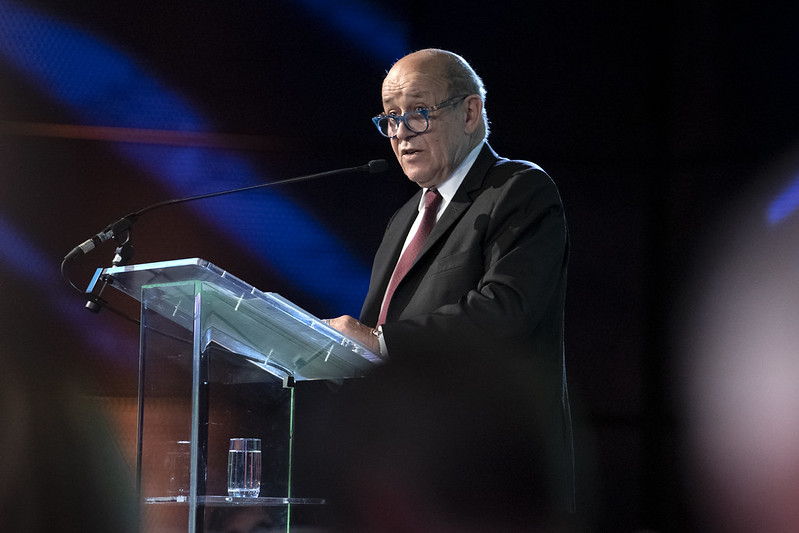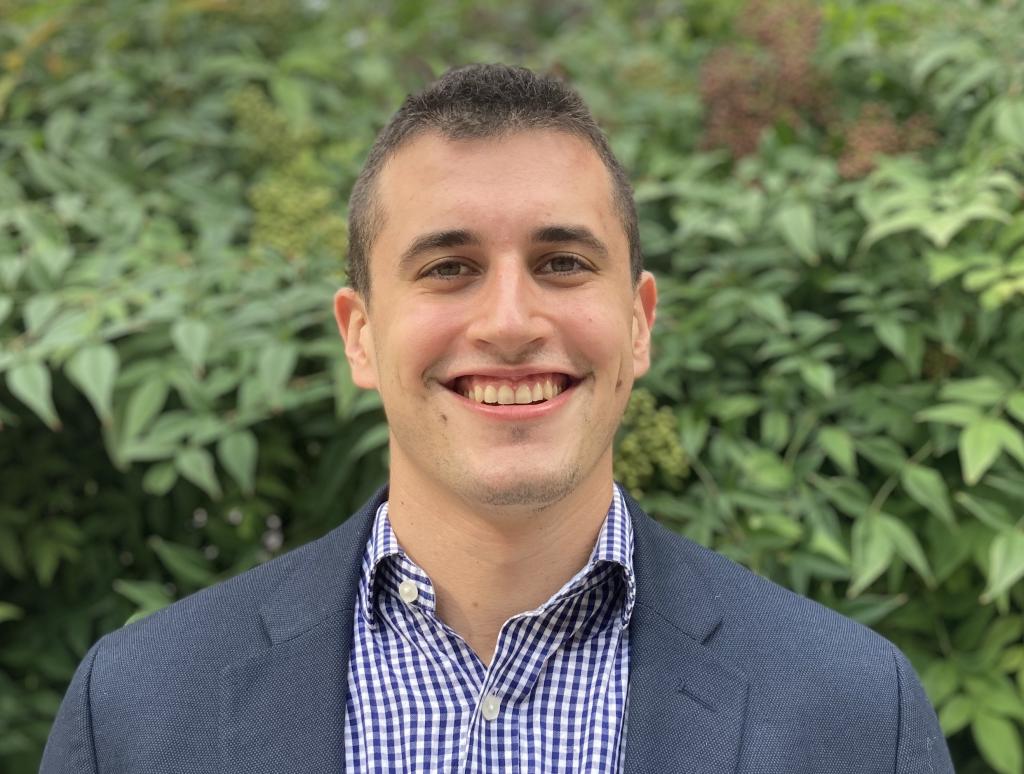Will SDF-Affiliated Courts Try European Foreign Fighters?
The local administration in northeastern Syria wants to try foreign fighters. Will European countries support the plan?

Published by The Lawfare Institute
in Cooperation With

European governments have a problem in Syria: Around 2,000 foreign fighters, including many Europeans, accused of fleeing to Syria to join the Islamic State remain in local custody. And European states appear to have no interest in letting them return to the continent. They’re looking for alternatives.
An international tribunal? They appear not to have been able to put together a coalition. Let Iraq try the foreign fighters? That doesn’t seem to have worked either.
In recent weeks, European governments have been presented with a new proposal to address their foreign fighter problem: letting local authorities affiliated with Syrian Democratic Forces (SDF) in northeastern Syria hold trials of foreign fighters detained in the region. This idea comes even as European countries continue to navigate the inflow of alleged fighters deported from Turkey.
On Jan. 29, Abdulkarim Omar, an official of the largely Kurdish, SDF-affiliated group that administers large portions of territory in northeastern Syria, announced in Finland that the local administration “ha[s] a plan to start proceedings on-site” in Syria. The group had initially floated the idea of tribunals in March 2019. According to Omar, it will be ready to begin the trials in the coming months. Omar offered a practical defense of the local authority’s jurisdiction over the trials: “[T]he crimes have been committed there so the evidence and the witnesses are also there.” He told reporters that his group had asked other countries for support in conducting the trials.
The plan has attracted mixed reaction. One downer: It does not enjoy U.S. support. Ambassador James Jeffrey, the U.S. special envoy to Syria, told reporters on Feb. 5 that the U.S. maintains its stance that “foreign terrorist fighters need to be returned to their home countries.” United Nations representatives seem no more keen on the idea. During a Feb. 11-12 international conference on foreign fighters in Austria, the U.N special rapporteur on the promotion and protection of human rights and fundamental freedoms while countering terrorism joined the chorus, noting that “the inadequate and dysfunctional judicial systems in both Iraq and Syria are not an answer” to the problem of accountability for alleged former Islamic State fighters. I have also been unable to find any European government statements in support of the plan, and reports indicate that some European governments have refused to support the nascent proposal. The SDF-affiliated Rojava Information Center reported on Feb. 19 that the Netherlands and Sweden have agreed to support the local administration’s plan, but no other outlets have matched that claim.
Notably, the local SDF-affiliated authority’s legal system has a relatively lenient approach to sentencing. Whereas Iraq routinely executes those convicted of Islamic State membership, the local administration eschews the death penalty. The administration has capped sentences of the 7,000 local Islamic State fighters it has already tried at 20 years. Life sentences are reserved for those convicted of war crimes. And the administration has already released some lower-level Islamic State members convicted in local courts.
These sentences are roughly similar to sentences in European courts for returning terrorists as European governments have confronted the problem of a wave of convicted Islamic State members reentering society. In France, convicted foreign fighters receive an average sentence of 10 years, according to Jean-Charles Brisard of the Center for the Analysis of Terrorism. Some of those convicted in various European courts for contributing to fighting in Syria have already been released and many more will join them by the end of 2020.
Local authority trials that produce the expected short sentences would thus likely defer, but not eliminate, the repatriation problem for lots of the detainees in question. Already faced with a wave of returning foreign fighters and the need to release ones sentenced in their own courts, European governments could expect another inflow of foreign fighters a few years down the road as the local authority’s sentences wane.
Just how many foreign fighters are there in SDF custody? Around 2,000 (though perhaps as many as 3,000) foreign fighters were detained in makeshift jails in northeastern Syria as of October 2019 (it’s unclear how much that figure has changed in subsequent months as the territory has become more difficult to access). Local officials have expressed frustration at the strain of detaining such a high volume of fighters. One assistant minister for the local administration, referencing the difficulties of keeping up a detention infrastructure capable of securing thousands of foreign fighters, argued that the local administration is “under siege.”
But European countries have been steadfast in their opposition to large-scale repatriation of their citizens. In certain isolated cases, European countries have repatriated individual fighters from SDF custody—and garnered praise from the State Department for doing so. But they have studiously avoided generalizing the practice to the others who remain in local authority prisons. This position has attracted criticism from President Trump, the U.N. High Commissioner for Human Rights and the SDF-affiliated administration. Omar noted during his tribunal announcement that “European countries have not been willing to take their citizens back, and from [the local administration’s] perspective that is extremely wrong.”
European countries have pursued (and since abandoned) a number of proposals that would have enabled them to avoid repatriating foreign fighters. For a few months in 2019, the Swedish and Dutch governments championed a campaign to establish an international tribunal to try former Islamic State fighters. Support for the idea has since petered out.
France, the European nation that has seen (by far) the largest cohort of its citizens leave to fight for the Islamic State, spearheaded an effort to convince Iraq to try foreign fighters in Iraqi courts. But French Foreign Minister Jean-Yves Le Drian conceded in December 2019 that “given the situation in Iraq”—a reference to internal turmoil in the country—the plan “isn’t feasible in the short term.” In the same interview, Le Drian gestured at France’s back-up plans, noting that the problem of foreign fighters will “have to be resolved in the framework of the comprehensive political settlement that began very slowly in Geneva with the launch of the Consultative Committee, aimed at remodifying the Syrian constitution.” I’m not sure exactly what that means, but it doesn’t appear likely to involve flying accused French jihadists en masse to the Palais de Justice.
The already-vexing situation was made more complicated when Turkey began to deport foreign fighters in its custody in November 2019. It’s not entirely clear whether the deportees came into Turkish custody during the country’s October 2019 offensive in northeastern Syria (Turkey did offer assurances before it began its incursion that it would take responsibility for prisoners it encountered during the campaign) or whether Turkey had detained them earlier in the conflict.
The Turkish government saw Europe’s anti-repatriation position as no obstacle to their plan. As the deportations began, Turkish Interior Minister Suleyman Soylu resolved, “We will send Islamic State members back to their own countries whether or not their citizenship is revoked.”
In the first round of deportations, Turkey expelled about 20 alleged terrorists, a mix of men and women. Accused jihadists from Germany, France, Ireland and Denmark were all sent back to their home countries. And so was one American.
Turkey captured the American, Muhammad Darwish Bassam, during its October 2019 incursion into northeastern Syria. A month later, Ankara decided Bassam was “not our problem” and kicked him out. Bassam tried to go to Greece, but it was no more eager to take in the American. After Greece denied him entry, Bassam became the subject of dramatic footage depicting him stuck in the buffer zone between Turkey and Greece. U.S. officials eventually intervened and agreed to repatriate him, but little is known about what has happened to Bassam in the nearly three months since his repatriation.
Ankara purported to have initial ambitions of deporting 2,500 foreign fighters. But those aspirations have so far proved to be hyperbolic. On Feb. 18, the head of the Turkish migration department noted that since the fall, the country has expelled 229 fighters, 75 of whom are EU citizens. Turkish state media outlets continue to metronomically announce the deportations: “Turkey deported four terrorists of French nationality back to their home country,” “Turkey deported four terrorists of German[] nationality to their country.”
European countries have largely submitted the deportees to domestic legal proceedings—but have not moved to extend the same treatment to all the foreign fighters still detained in Syria. France justifies this bifurcated approach by citing a 2014 bilateral agreement with Turkey that established a repatriation process with Ankara—the “Cazeneuve protocol”—whereby fighters are “transferred to France through very specific channels and rules,” arrested upon arrival and “subsequently tried in France.” In mid-December 2019, a French radio host asked Le Drian whether France will allow domestic courts to try foreign fighters and whether French magistrates have “a sufficient legal arsenal to prepare a case file” for these defendants. “Conducting trials in France poses no problem, no problem,” Le Drian replied, “for people transferred under the Cazeneuve protocol coming from Turkey.” In other words, French courts are not open to all foreign fighters.
European governments essentially oppose all options: They don’t want to take the detainees themselves. They don’t want the Iraqis to try them—or, at least, they acknowledge the idea is impractical. The campaign for an international tribunal has lost steam. And they aren’t jumping at the option of having the Kurds try them.
Remind you of something? It’s the European version of the American Guantanamo dilemma. But the numbers of detainees are much larger, and the default option is not military detention by the countries themselves but a less visible proxy detention by a quasi-state actor in theater.
Yet as attempts to find alternative venues to try European foreign fighters have continued to stall out, small cracks in the European posture have begun to emerge. After the Iraq plan fell through, French Minister of Justice Nicole Belloubet conceded that “[i]f it’s no longer possible to try [French foreign fighters] on site” in Iraq or Syria, she “see[s] no other solution than to repatriate them in France.”
At what point will France and its peers admit that on-site trials are “no longer possible?” Should the local authority plan fail to materialize, European countries may just run out of options. Or maybe the announcement will end up giving European countries another few months to avoid confronting repatriation head-on—or perhaps the trials will go forward and provide Europeans with an option that can buy more time than that without their ever having to bless it publicly.





